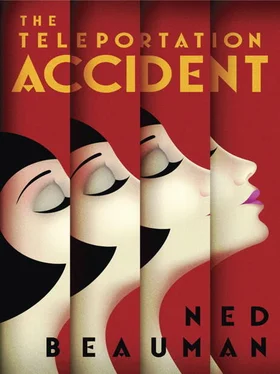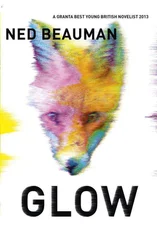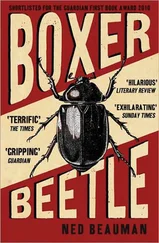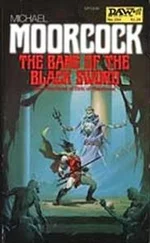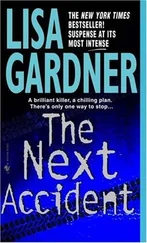‘Three weeks? You’ve gone longer than three weeks before.’
‘Of course I’ve gone longer than three weeks. I seem to remember I once went nineteen years.’
‘So why are you complaining?’
‘If my platoon is stranded in the mountains and our rations have just run out, I’m not allowed to start worrying until we actually begin to starve?’
‘Won’t be long before you resort to cannibalism, I imagine.’
‘Anton, I resorted to cannibalism one afternoon in 1921 and I have hardly stopped since. The point is, it could be another six months before even the most rudimentary lines of supply can be re-established. It could be a year. Or, who knows? I may never have sex again without paying. Never. It could happen.’
‘You’ll meet someone.’
‘That is a groundless probabilistic calculation, and therefore of no value. I thought you knew better than to try to reassure me. There is nothing more sickening than reassurance.’
‘If you are going to be like this all evening then I really am going to need some coke too. I wish you hadn’t pissed off Klugweil.’
And Littau was in Munich, and they both owed money to Tetzner, and the toilet attendant at Borchardt would sell them crushed aspirin. ‘Or the one at the Mauve Door?’ said Achleitner finally. ‘The one with no ears.’
‘Even worse — I don’t know what he sold us last time but it nearly made me soil myself in the street on the way back to Brogmann’s house. I’m fed up with buying it from strangers. Come on, you must be able to think of someone. You lot’ — by which Loeser meant homosexuals — ‘always seem to know twice as many people for this sort of thing.’
‘Thank you for your confidence, but I don’t think I can help in this case. Oh, although that Englishman from last night had excellent stuff with him.’
‘Which Englishman?’
‘Some blond aspiring writer from London. I met him at the Eden Bar. Hung like one of those Norse giants from the Ring Cycle.’
‘Can we find him again?’
‘I think I’ve got a number for his boarding house.’
Loeser sighed. ‘Listen, Anton, as fondly as I remember the many, many evenings of our youth that we’ve squandered running round Berlin searching in vain for adequate drugs, I just don’t think I’m in the mood tonight. And anyway, my septum is still convalescing.’
‘But we have to go to this party. I heard Brecht is going to be there.’
‘Oh, ha ha.’ There was nobody in Berlin that Loeser loathed more than Bertolt Brecht, and there was nothing about Berlin theatre parties that he loathed more than the ubiquitous cry of ‘I heard Brecht is going to be there’.
‘And Adele Hitler.’
‘What?’
‘She’s back from Switzerland, apparently.’
Adele Hitler was a giggly teenage girl from a rich family whom Loeser had tutored in poetry for two lucrative years before she went off to finishing school. ‘So? I’d stop to chat if I saw her in the street but I’m not going to the party just to catch up with the latest on her doll collection.’
‘She’s eighteen now,’ said Achleitner, raising an eyebrow.
‘What are you implying? I’m hardly likely to try to get her into bed.’
‘Pedagogical ethics?’
‘None whatsoever, but she was a grotesquely fat little thing.’
‘They say she looks very different. Ugly duckling and all that.’
Loeser considered this. ‘I did always think she had a bit of a crush on me.’ He finished his drink. ‘Well, all right, it’s not as if I have any dignity left to lose. Let’s find this Wagnerian gallant of yours.’
An hour later they met the Englishman in the street outside his boarding house on Konigslandstrasse. The evening was blustery, and nearby a hunchbacked balloon seller with two dozen red balloons stood shifting his weight against the tug of the wind like a Zeppelin breeder out promenading a whole litter of excitable pups.
‘I’d love to introduce the two of you,’ said Achleitner, nodding at the Englishman, ‘but I’m afraid on this napkin next to your telephone number I seem just to have written “London, blond, incomparable dong”.’
‘Rupert Rackenham. And for accuracy’s sake I’m originally from Devon. Have you been in a fight?’ he asked Loeser.
‘Of a kind.’
‘We were wondering if you had any more of that coke,’ said Achleitner.
‘Quite a cache of it, yes,’ said Rackenham. His German was good.
‘Can we buy some?’ said Loeser. ‘We’re going to a party later and it’s the only way we know how to endure the company of our friends.’
‘What sort of party?’
‘It’s in an old corset factory up in Puppenberg,’ said Achleitner. There had been a craze recently for parties like this: in disused ballrooms, bankrupt coffin warehouses, condemned gymnasia. Loeser’s attitude was that if a place was abandoned it was probably abandoned for a reason and reviving it voluntarily was perverse.
‘Well, as we’re all intimates now, why don’t I give you each a few lines as a gift? And then perhaps you’d be kind enough to bring me along to this party and introduce me to a few more of these unendurable friends that you mentioned.’
‘How many lines between the two of us?’
‘Let’s call it a sonnet.’
Achleitner shrugged at Loeser and Loeser shrugged back at Achleitner. So Achleitner said, ‘Fine. I should think once you’re there you’ll sell out the rest of your stock in about thirty seconds.’
‘Splendid. I’ll just go upstairs and get my camera.’ He had an educated, ironic, very English manner, at once sharply penetrating and affably detached, like someone who would always win the bets he made with strangers at weddings on how long the marriage would last but would never bother to collect the money.
‘We’ll find a cab.’
When he came back down, Rackenham had a Leica on a strap around his neck. He took a photo of Loeser and Achleitner and then the cab set off for Puppenberg. At the corner, a coachman was feeding his nag out of a wide-mouthed coal scuttle, pigeons pecking grudgingly at the spilled oats as if what they really craved was a few scraps of fresh horse brisket.
‘I assume you’re an artist of some kind, Herr Loeser,’ said Rackenham.
‘Why do you assume?’
‘Because since coming to Berlin I never seem to meet anyone who isn’t an artist. At least by their own description.’
Loeser thought of what he’d overheard at that cast party. ‘Yes, it’s a state of affairs I find pretty sickening, but as you correctly surmise I’m guilty of contributing to it myself. I’m a set designer. I work mostly at the Allien Theatre.’
‘What have you got on at the moment?’
‘Nothing quite yet. We’re just starting a new project.’ Loeser gave Rackenham a brief sketch of Lavicini as it was currently conceived. He always felt a bit self-conscious talking about his work in the earshot of taxi drivers.
‘So it’s a historical drama? I hope you won’t take offence, Herr Loeser, but I’ve never seen the point of historical drama. Or historical fiction for that matter. I once thought about writing a novel of that kind, but then I began to wonder, what possible patience could the public have for a young man arrogant enough to believe he has anything new to say about an epoch with which his only acquaintance is flipping listlessly through history books on train journeys? So I stick to the present day. I really think it’s the present day that needs our attention.’
‘By accident, Herr Rackenham, you’ve led me to one of the great themes of the New Expressionist theatre,’ said Loeser. And he explained Equivalence. Yes, whenever one began a play or a novel, there was a choice to be made: whether to plot your Zeppelin’s course for present-day Berlin, or seventeenth- century Paris, or a future London, or some other destination entirely. But the choice meant nothing. Consider Germany under the Weimar Republic in 1931. Thirteen years since its inception, five years since its acknowledged zenith, two years since there was last any good coke: a culture old enough, in other words, that journalists were already beginning to judge it in retrospect, as history. And they were calling it a Golden Age, an unprecedented flourishing. But if you were part of it — and even if you were only part of its decline, like Loeser — you couldn’t help but say to yourself: all these thousands of young people, all in a few nearby neighbourhoods, all calling themselves artists, as Rackenham had said. And all this spare time. And all these openings and all these premières and all these parties. And all this talk and talk and talk and drink and talk. For nearly fifteen years. All of this. And what had it produced for which anyone would really swap a bad bottle of Riesling in eight decades’ time? A few plays, a few paintings, a few piano concertos — most of which, anyway, went quite unnoticed by the boys and girls who made such a fuss about being at the heart of it all. If that was a Golden Age then an astute investor might consider selling off his bullion before the rate fell any further. There had been so many Golden Ages now, and Loeser was confident that they had all been the same, and always would be. Compare the Venice of the late Renaissance, where Lavicini came of age, to the Berlin of Weimar, or compare the Berlin of Weimar to whatever city would turn out to be most fashionable in 2012, and you would find the same empty people going to the same empty parties and making the same empty comments about the same empty efforts, with just a few spasms of worthwhile art going on at the naked extremities. Nothing ever changed. That was Equivalence. Plot a course for another country, another age, and the best you could hope for was that you would circumnavigate the globe by accident, and arrive at the opposite coast of your own homeland, mooring your Zeppelin trepidatiously in this rich mud to find a tribe you did not recognise speaking a language you could not understand. If Loeser could ever get his Teleportation Device working, then in future productions it might sling actors not just through space but through time.
Читать дальше
